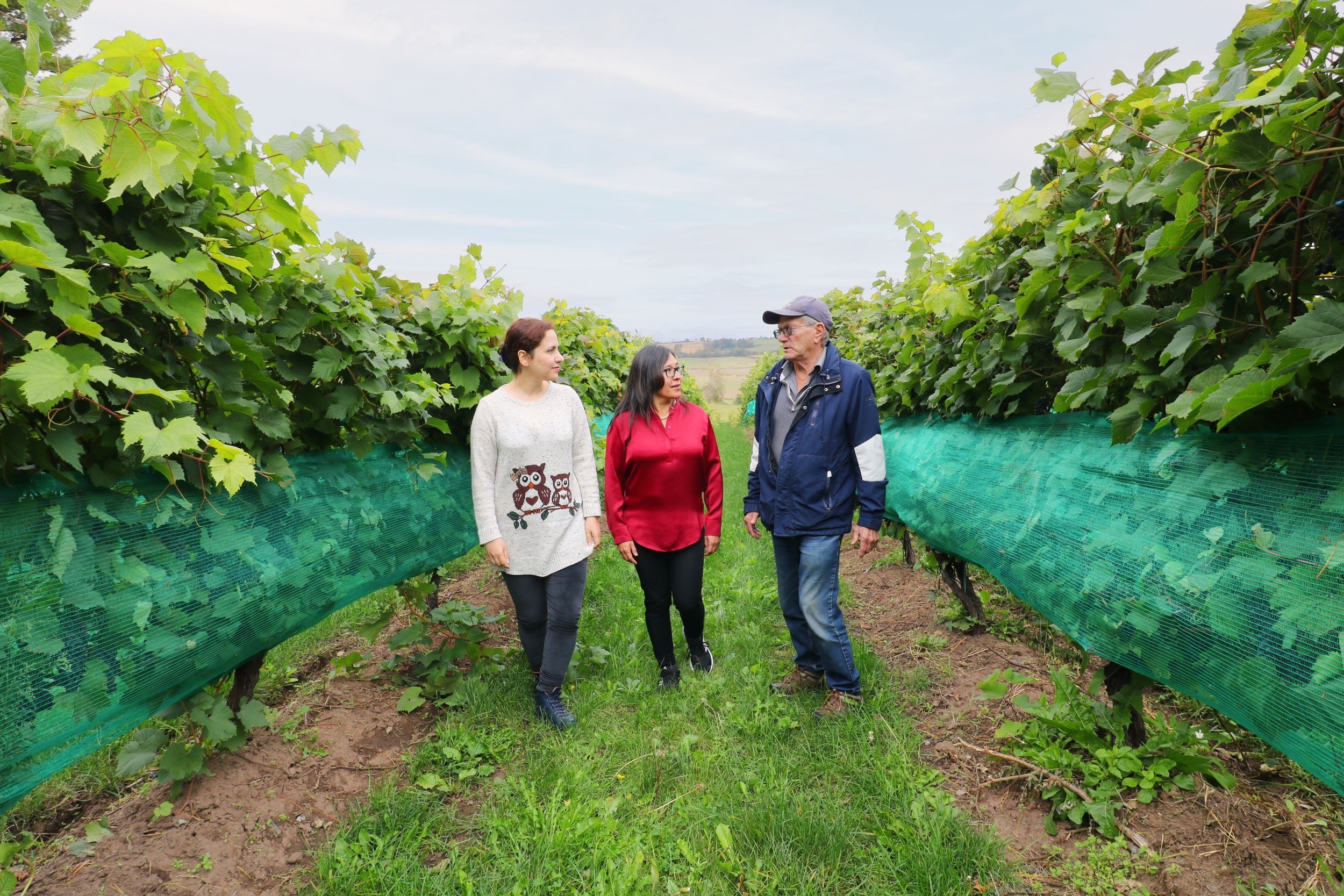

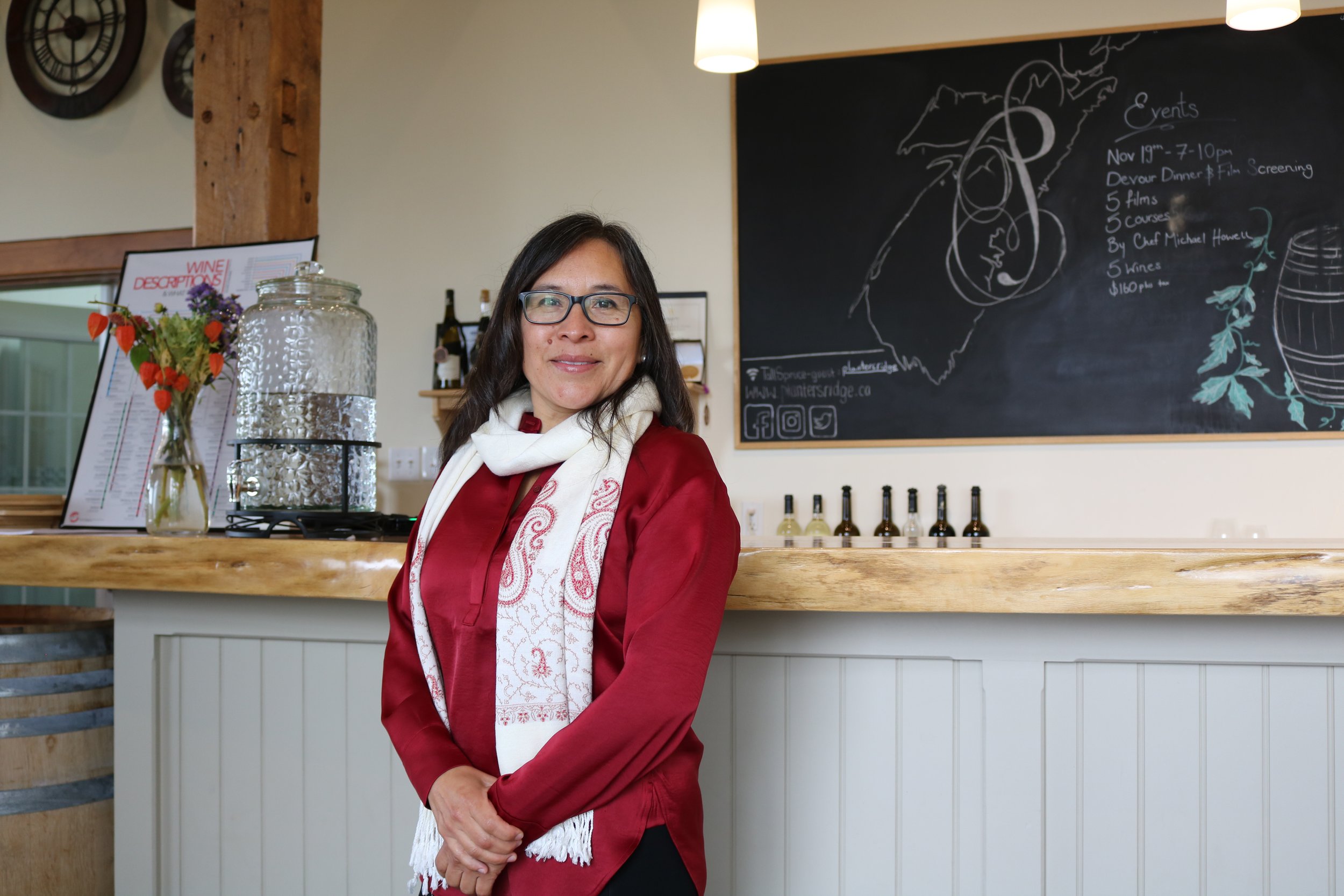
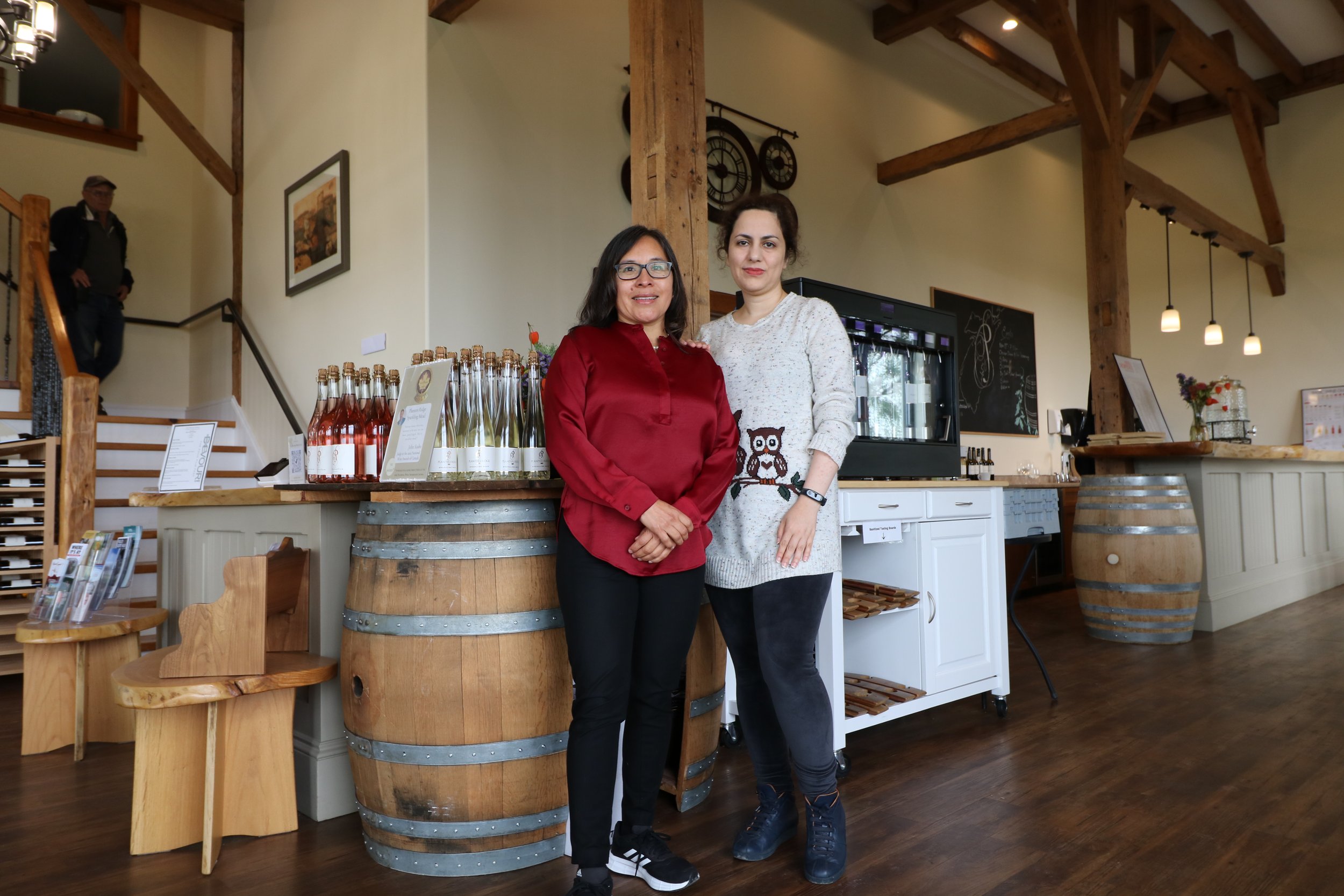
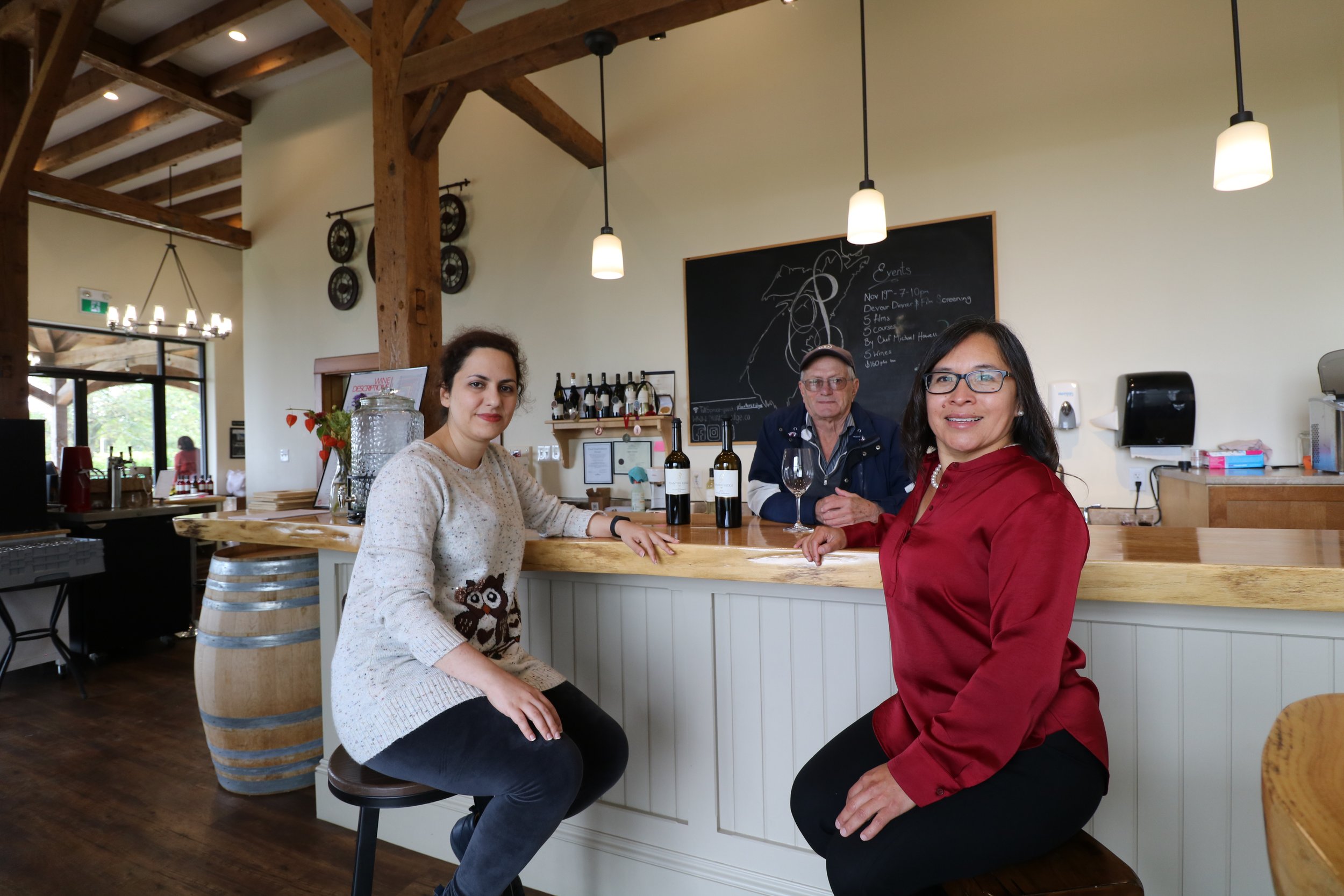
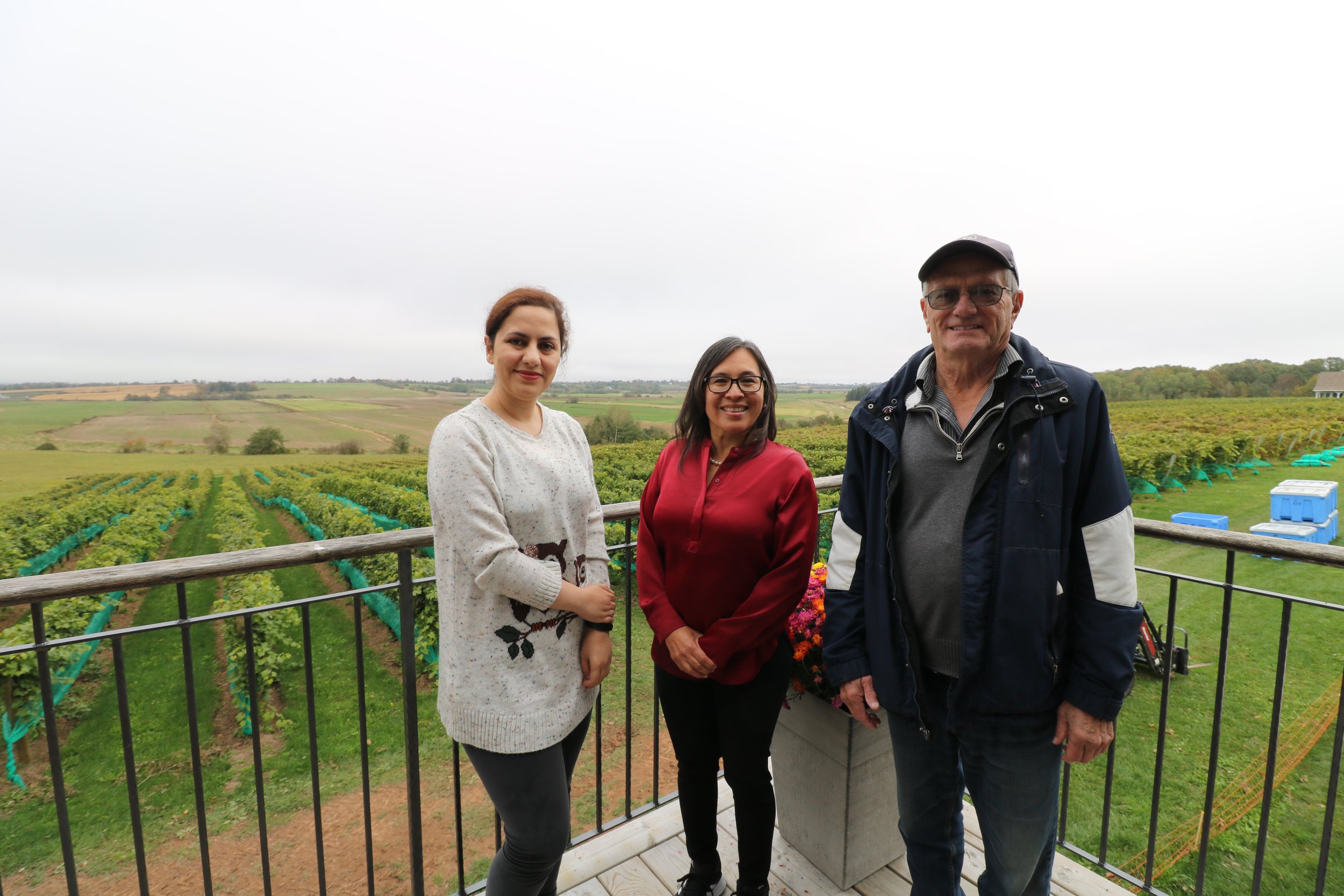
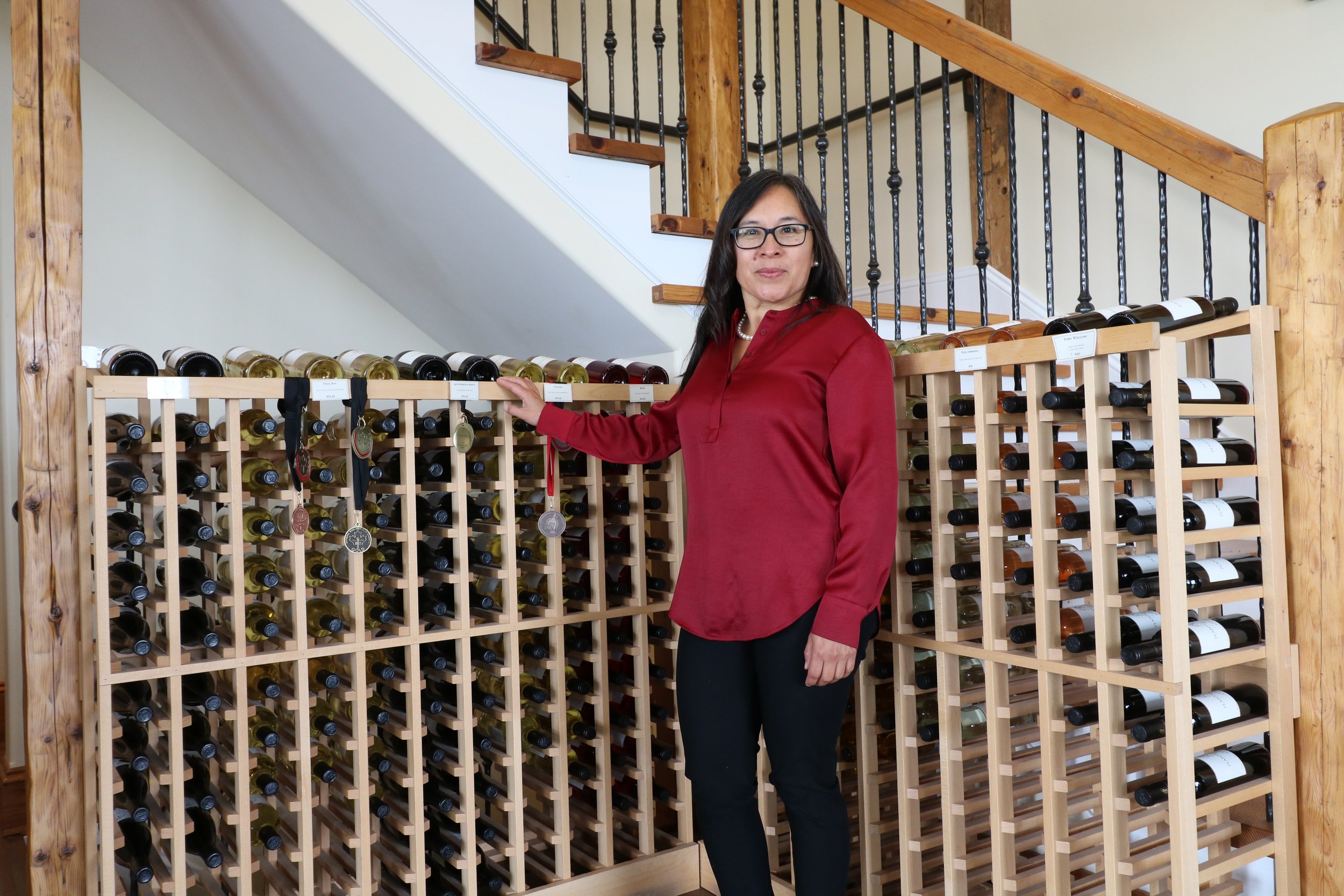
Dr. Claudia De Fuentes
Nova Scotia’s thriving craft wine industry is playing a key role in transforming rural areas of the province into vibrant communities. In interviews with winery owners, winemakers and experts from a variety of supporting organizations, Dr. Claudia De Fuentes, a professor in the Sobey School of Business, is exploring how industry specialists from different parts of the world are collaborating with Nova Scotia’s wineries to create and accumulate skills for continuously innovating their processes and products. The result of this collaboration is a one-of-a-kind craft wine industry in Nova Scotia.
The first two wineries in Nova Scotia—Jost Vineyards and Domaine de Grand Pre—began with their trailblazing founders’ vision. They saw the region’s potential, back when it was only a blank canvas. Their vision, and that of those who followed, unleashed Nova Scotia’s potential for wine production.
Today, the region has a truly inclusive innovation ecosystem which has led to the development of new products and services and constitutes a crucial socio-economic engine for rural Nova Scotia. Results of this innovation include the ‘Tidal Bay’ appellation, which is one of the few Canadian products to have a denomination of origin. Wineries continuously experiment with ways to improve their wines and contribute to place-making through the growth of the industry in rural Nova Scotia while connecting with local communities and providing visitors with a relaxing environment.
“Thanks to the evolution of the local industry, we are enjoying the ‘transfer and creation of knowledge’, where practices developed in other wine-producing countries are embraced and transformed to fit the very specific characteristics of the province’s terroir,” says De Fuentes. “The momentum of these efforts has contributed to place-making via the attraction and retention of talent, by contributing to the diversity of industry in rural Nova Scotia, and to the relevance of the wine industry in particular.”
Dr. De Fuentes and Sobey School of Business PhD student Fariba Seyedjafarrangraz, along with colleagues from HEC Montréal and the University of Waterloo, will soon release an SSHRC-funded research publication outlining the impact of Nova Scotia’s thriving craft wine industry on rural revitalization.
